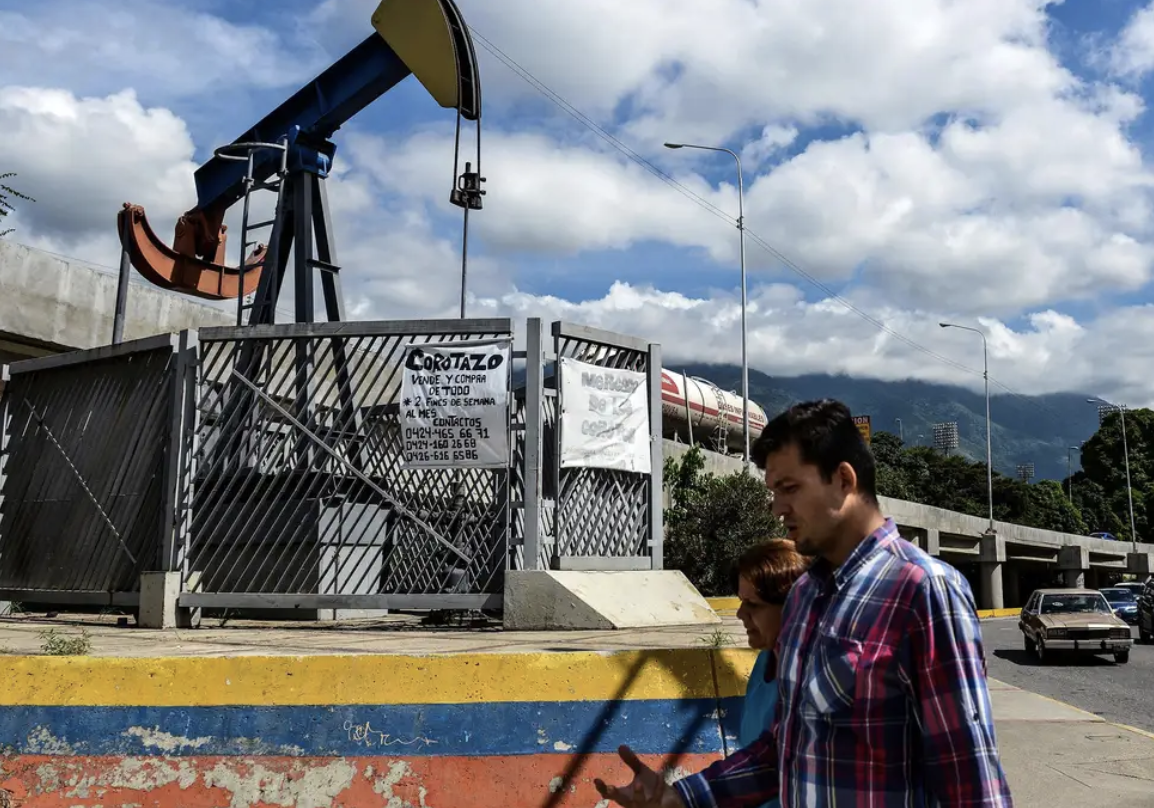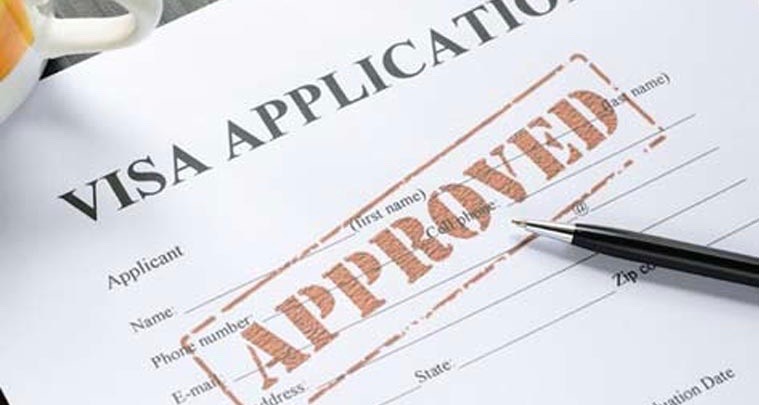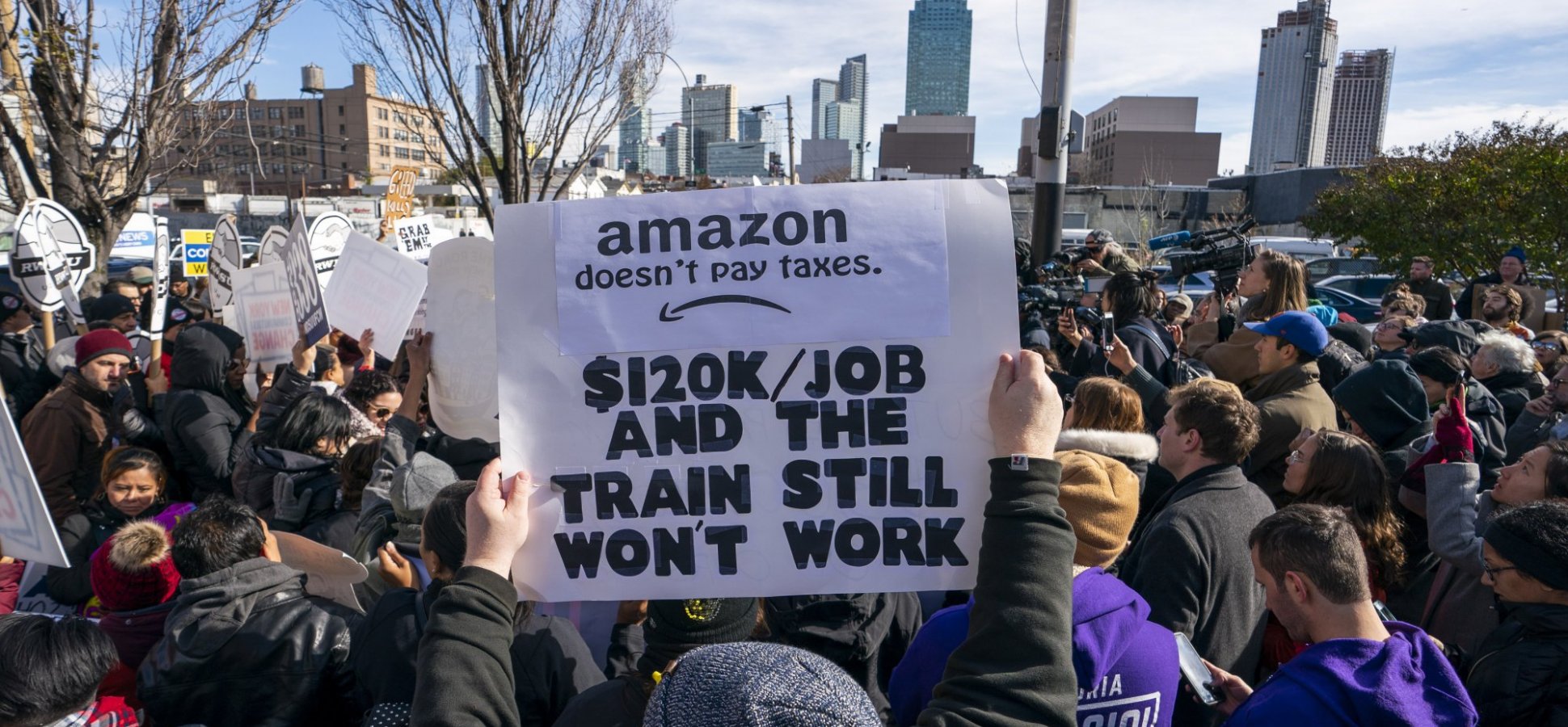
NANDITHA NAIR – OCTOBER 15TH, 2019 EDITOR: SHAWN SHIN
Prior to the 1980s, Venezuela was hailed as the richest country in South America. Now, some four decades later, it’s on the brink of total collapse. Despite its abundance in oil—dubbed ‘black gold’—which promised a bright future for the country’s economy, Venezuelans today are surviving on foreign aid. It’s bound to go in the history books as a classic case of the “resource curse”: the tendency of resource-rich countries to have unstable economies and undemocratic institutions. Today, Venezuela faces the triple burden of economic, humanitarian, and political crises that show little hope of resolving themselves.
Nicolas Maduro, the president of Venezuela and a member of the United Socialist Party, has continued the socialist regime established by his predecessor and mentor Hugo Chavez since his election to power in 2012. In 2018 he began his second six-year term, following an election which has been widely claimed as fraudulent by his two opposition parties, the international community, and independent watchdogs like Freedom House. Reacting to the irregularities of that election, Venezuela’s opposition-led legislative body, the National Assembly, declared Maduro a usurper in January of 2019. In addition, the parliament referenced constitutional article 233 and declared its own president, Juan Guaido, as interim head of state and demanded a rerun of the elections.
The country has since reached a gridlock—one which has not been solved by the participation of a divided international community. Guaido has garnered the support of over 50 countries, including and most importantly, that of the United States. Since January, the Trump administration has tightened restrictions of access to US financial markets as well as trade sanctions on Venezuelan state companies, which fund the Maduro regime. This is a continuation of sanctions established during the Bush and Obama regimes, which have supported opposition parties in favor of Chavez and Maduro. The US also placed sanctions on international actors, such as the Russian Evrofinance Mosnarbank, which have been affiliated with the Venezuelan state oil company PdVSA. Guaido has also won the support of most of South American countries, increasingly putting the country in a position of political and economic isolation. These measures have compounded over 20 years of continued economic mismanagement, resulting in the lowest national oil production volumes in decades.
However, Guaido’s claim to the presidency has hardly been substantiated. Since January, Guaido has mobilised Venezuelans from disillusioned slums into protests. But the government has responded in kind through anti-riot crackdowns that have resulted in over 100 deaths, as well as by organising counter-protests in favor of Maduro. Furthermore, Guaido’s efforts to spark a military coup have been fruitless, attracting only a few low-level dissidents while top leaders remained loyal to Maduro. In effect, Maduro remains in control of Venezuela’s key institutions, including the Supreme Court. The de facto president has rejected Guaido’s presidency, and echoing Chavez’s fears of US interference in Venezuelan politics, has called Guaido a “US puppet.” In addition to domestic control, Maduro is backed by Russia, China, and a few other countries. They have been key players in supporting the Maduro regime, vetoing a US draft resolution at the UN Security Council calling for re-elections in February. Russia, which has a history of investment in PdVSA through its own state-owned arms and oil industries, no doubt wishes to ensure that the Maduro regime lives to repay its debts. In addition, Venezuela’s geopolitical position means it is of particular interest to the European superpower, which aims to extend its influence on the South American continent. China on the other hand seems to be on the fence, and is supporting the status quo by default.
However, international support for Maduro has been mostly symbolic and the regime has not had the good fortune of having physical proximity to its allies. Surrounded by countries enforcing heavy trade sanctions, the future looks bleak for Venezuela unless the government and the opposition can reach a settlement. Mediation efforts facilitated by Norway have fallen apart, with the government and legislature failing to arrive at a compromise between the demands for relaxed sanctions and free elections. As the stalemate continues, so does the suffering of the country’s population of 32 million, of which about 90 percent are living below the poverty line—a statistic that has been increasing steadily since Maduro’s rise to power.
Since the time of Chavez’s rule, known as Venezuela’s supposed golden age, the country has periodically faced severe shortages of basic consumer goods. Following the plummet in oil prices in 2014, the situation has only worsened, with the country’s economy going into a tailspin. In addition to the scarcity of food and water, inflation—which has remained at around 10 million percent over the past year—has left most Venezuelans scarcely able to afford one meal a day. An ever-increasing shortage of medicine and healthcare professionals has been accompanied by the return of malaria, diphtheria, and measles, with fatality rates increasing by the year. These conditions have sparked a refugee and migrant crisis in the region, with over 4 million Venezuelans fleeing into neighbouring countries, according to the UNHCR.
Venezuelans have Hugo Chavez and the expensive policies of his “Bolivarian Revolution” to thank for its current state. Chavez implemented a number of socialist reforms during his term, making healthcare, education, and housing more affordable. To fund these changes, he siphoned profits liberally from the PdVSA. While his measures were popular with the masses and Venezuela’s GDP continued to rise throughout his presidency, the expensive socialist regime neglected to maintain the capital-intensive oil industry on which its economy was so dependent. With little resources left behind, the PdVSA neglected to sufficiently reinvest in the discovery and drilling of new oil wells, which, while it is a crucial aspect of maintaining production volumes in any oil industry, was and is even more imperative for the Venezuelan case owing to its geological peculiarities. Chavez’s policy changes did not occur without resistance from within the PdVSA, but he paved his way to complete control through rounds of mass firings. This resulted in a massive loss of technical expertise, which spectators believe will take decades to rebuild.
In retrospect, the current crisis seems to have been inevitable for an economy propped up on a single price-sensitive industry. Adding to this mix a healthy serving of corruption and a fair share of political repression, it’s clear to see that the crisis in Venezuela has been a long time coming. According to Deputy of the National Assembly, Juan Andres Mejia, the revival of the Venezuelan economy depends on the replacement of the 2001 Hydrocarbon Laws implemented under Chavez with new efforts to foster private sector growth. In addition, reparations of essential infrastructures and a temporary reliance on food imports, at least while the agricultural industry is being restored, are the first plans of action. But with the military firmly in Maduro’s hands, how long this crisis will take to resolve and stabilize will depend on how willing both parties are in negotiating a settlement, and how capable international actors are in facilitating those discussions.
Featured Image Source: The Independent
Disclaimer: The views published in this journal are those of the individual authors or speakers and do not necessarily reflect the position or policy of Berkeley Economic Review staff, the Undergraduate Economics Association, the UC Berkeley Economics Department and faculty, or the University of California, Berkeley in general.



